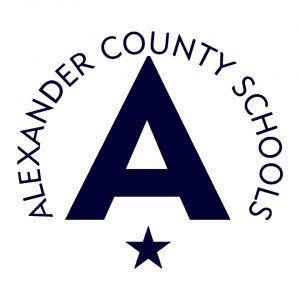 By. Dr. Denita Dowell-Reavis
By. Dr. Denita Dowell-Reavis
ACS Communications Director
Four Alexander County schools improved their letter grade on the state report card according to this past year’s standardized testing results. The state Board of Education approved the release of testing data at the September 6th regular meeting. Schools, teachers, and staff will continue to work hard to help students reach state testing expectations while the district celebrates the latest results. Statewide, schools also showed progress on accountability measures, with more than seven of every 10 achieving or exceeding their goals for academic growth.
State Superintendent of Public Instruction Catherine Truitt attributes part of the improvements to reading training for elementary teachers. Truitt said. “As more early-grades teachers adopt literacy instruction grounded in the science of reading, students will be stronger readers as they progress through elementary school and into middle school. We’re going to see continued improvement in those test scores and others.”
Bethlehem Elementary, Sugarloaf Elementary, Wittenburg Elementary, and West Alexander Middle School all improved a letter grade. For those that were labeled a “C” last year, they are now a “B”. Wittenburg moved from a “D” to a “C” and Hiddenite Elementary missed being labeled a “C” by one point. School letter grades, also known as School Performance Grades (SPG) drive a good deal of conversation about the quality of schools. But the grades took on a new, more critical meaning when the pandemic forced schools to close for face-to-face learning.
“There is clear evidence of the efforts of educators, students, and parents to close the gaps in academic learning created during the pandemic,” chair of the State Board of Education Eric Davis said. “We should recognize those efforts and support those efforts with the resources our students need to succeed,” said Davis.
Critics of the way schools are assigned the letter grades believe the state should put more emphasis on the school’s growth than performance. Currently, schools are graded 80% based on how many students passed the test and 20% on how much students grew. The state has a committee studying what factors should go into school grades (i.e. attendance, extracurriculars offered); however, there’s no indication the 80-20 formula will change.
“I have said for years I would rather someone come in and watch what I do, or watch my kids, or even do a portfolio for my kids, and I teach a 100 kids or more, and I would rather keep up with that for 100 kids than to test them one time at the end of the year in a setting that is not the same as we test in schools. Yes, they may be in the class that’s the same but to tell them ‘I can’t help you. I can’t read anything to you. I can’t talk to you’. That goes against everything that I believe as a teacher. My job is to be here to help them” says 7th grade ELA teacher Carla Harrington.
Harrington believes that building relationships with students helps with academic strides. She teaches at East Alexander Middle School, the district’s lowest performing according to the test results. East’s score was relatively unchanged this past year based on proficiency, but the school did show solid growth.
“Every bit of progress is a celebration. This is the initial change, some groundwork for the future. If we can continue to trend that way, we are going to be able to get where we want to be. Any progress is progress, so we are trending in the right direction,” says EAMS principal Brett Huffman. Huffman says the school continues to make improvements and he’s excited about what the scores will show at the end of this school year.“We’ve built time in for each student to customize their experience and tailor make it for their abilities,” avows Huffman.
The state analysis found students showed signs of academic recovery in nearly every subject, with the strongest gains measured in middle and high school math, with notable gains also found in third- and fourth-grade reading, eighth-grade science and high school biology.
Another way the state presents the scores is in categories of exceeded expected growth, met expected growth, and did not meet. Four schools in ACS (including the Alexander Virtual Academy) did not meet expected growth this past year, 2022-23. However, three schools moved out of the “Did Not Meet” category into met expected growth.
The students’ achievement results for 2022-23 school year are based on all End-of-Grade and End-of-Course tests for reading and math. Students who score a Level 3 and above are considered proficient at grade level. A Level 4 and above is considered college and career ready.
Overall, state scores show districts, schools, and students making progress, but they’ve not bounced back to the level for the 2018-2019 school year. That’s the last year students were tested before the pandemic.